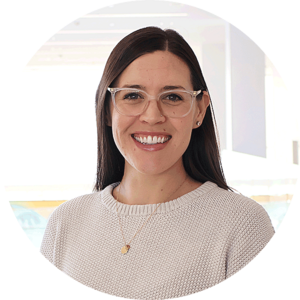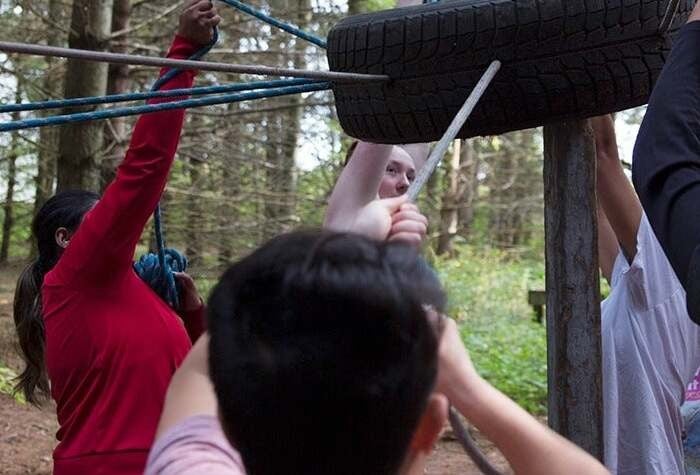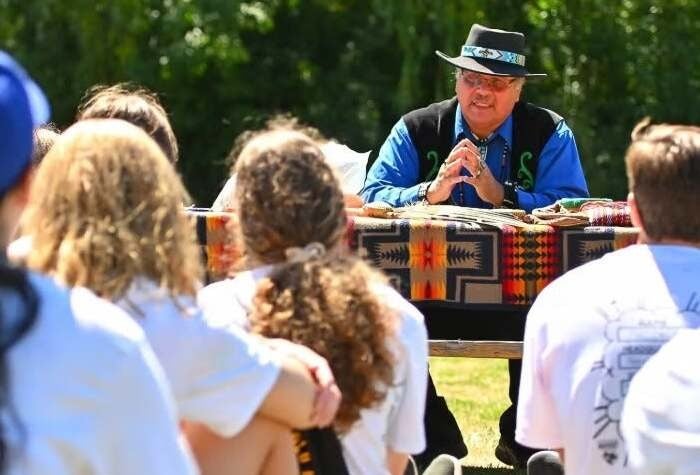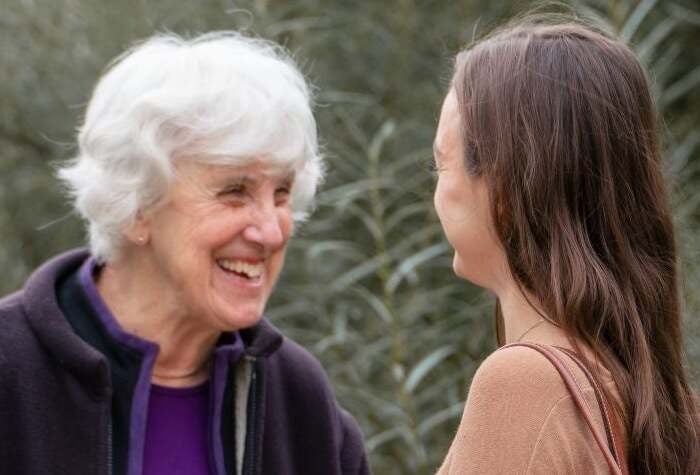Recreation, Leadership, and Health degree

Be a leader in shaping healthy communities
We know recreation is key to happy, healthy, and connected communities. It takes strong, people-minded leaders to build new opportunities for recreation and make positive change in the world.
You’ll learn how to plan, implement, and evaluate recreation programs and initiatives to build healthy populations. Throughout your degree, you’ll strengthen your leadership, communication, and teamwork skills, and learn to apply a social justice lens to your work to become an inclusive and innovative leader.
With 12 electives, you can easily customize your degree to make it your own. Explore a wide range of minors including Social Development Studies; Gerontology; Addictions, Mental Health, and Policy; Tourism; and Human Resources Management. Plus, with co-op and lots of opportunities to get out of the classroom and into the real world, you’ll graduate ready to jump in at any level and make a difference.
What courses will you take in Recreation, Leadership, and Health?
First-year courses
You'll take mostly Recreation and Leisure Studies courses that dive into the theory behind leisure time, programming design and delivery, and community leadership foundations for your upper-year classes.
September to December
- REC 100 – Introduction to the Study of Recreation and Leisure
- REC 101 – Introduction to Leisure, Sport, and Recreation Management
- REC 120 – Experience Design and Delivery
- Learn about the overnight REC 120 retreat
- HEALTH 107 – Sociology of Activity, Health, and Well-being
- PYSCH 101 – Introductory Psychology
This is a sample schedule. Courses or when a course is offered may change depending on availability.
After first year
About half of the classes you'll take will be Recreation and Leisure Studies courses, with topics ranging from outdoor recreation to leadership theory to action for community change. The other half dives into inter-disciplinary topics including sustainability, Indigeneity, and conflict resolution.
With your remaining classes, you can choose electives from many of the 100 subject areas at Waterloo to explore areas of interest, take pre-requisite courses, or pursue a minor.
View all courses you'll take for your degree.
Sample upper-year courses
REC 201 – Introduction to Leisure, Equity, Diversity, and Inclusion for Just Communities
REC 230 – Outdoor Recreation and Land-based Learning
REC 318 – Leadership Theory and Practice in Recreation, Sport, and Leisure Organizations
REC 420 – Advanced Program Evaluation in Leisure Services
REC 405 – Leisure and Well-being
Customize your degree
You can add additional areas of interest and expertise by including one or more of the areas of focus within the program.
- Event Management
- Tourism
You can also pursue a double degree, joint honours degree, or one of the minors available to all Waterloo students. Popular areas of focus for Recreation students include Canadian Politics and Public Policy; Psychology, Social Development Studies, and Gerontology.
Faculty:
Faculty of Health
Degree:
Bachelor of Arts in Recreation, Leadership, and Health
Available as a co-op program?
Yes
Available as a regular program?
Yes
Available as a minor?
No
First department of recreation in Canada. We've been leaders since day one and are dedicated to ensuring you gain the most relevant, up-to-date knowledge. Plus, after 50+ years, our graduates' success has built our reputation for educating the health care leaders of tomorrow.
Get hands-on experience in class. Benefit from classes that include field trips, industry guest speakers, community projects, and real-life case studies.
Co-op = relevant paid work experience
In the world's leading co-op program, you'll explore potential careers, learn to interview for jobs, graduate with up to two years of valuable experience — and make money!
Sample co-op job titles
- Community recreation facilitator
- Recreation therapy intern
- Summer camp counsellor
- Marketing, outreach, and events assistant
- Outdoor education assistant
- Guest services coordinator
Co-op work-study sequence
Starting in second year, you'll normally alternate between school and work every four months, integrating your classroom learning with real-world experience. You can return to the same employer for a couple of work terms to gain greater knowledge and responsibility or work for different employers to get a broad range of experience.
| Year | September to December (Fall) | January to April (Winter) | May to August (Spring) |
|---|---|---|---|
| First | Study | Study | Off |
| Second | Study | Co-op | Study |
| Third | Co-op | Study | Co-op |
| Fourth | Study | Co-op | Study |
| Fifth | Co-op | Study | - |
Your first work term will be halfway through second year (January to April 2027).
What can you do with a degree in recreation?
Graduates often pursue careers in areas such as event management, program coordination, education, not-for-profit administration, facilities management, and community development.
Recent graduates
- Youth Worker — Pioneer Youth Services
- Recreation Coordinator — Town of Halton Hills
- Coordinator, Recreation and Student Life — Wilfrid Laurier University
- Facility Program Supervisor — City of London
- Teacher — Waterloo Catholic District School Board
- Manager Registration and Travel — Tim Horton Children’s Foundation
- Recreation Director — Mid-Sun Community Centre
Learn about Jonathan's unique career path following his graduation from Recreation and Leisure Studies or discover the future of careers in health and helping professions.
Read profiles and view videos about the path Recreation graduates took to pursue their career.
Further education
While the full range of further education depends on your individual interests, these are common areas where graduates pursued a master's, PhD, or other professional program.
- Business administration (MBA)
- Education (teacher's college)
- Project management
- Tourism
- Law
- Social work
Common questions about the program
Why do I apply for Recreation and Leisure Studies to study Recreation, Leadership, and Health?
Recreation and Leisure Studies is the entry program - or gateway - to three distinct majors: Recreation, Leadership, and Health; Sport and Recreation Management; and Therapeutic Recreation. You'll apply to Recreation and Leisure Studies and pick Recreation, Leadership, and Health as your major on your application. Once you confirm your Offer of Admission, we'll enroll you in Recreation, Leadership, and Health.
Though each of the majors has a different focus, specialized courses, and unique identity, you'll be a part of the greater Recreation and Leisure Studies community and get to know students outside your major too!
What’s the difference between Recreation, Leadership, and Health and similar programs at other universities and colleges?
Waterloo was the first university in Canada to have a Department of Recreation and Leisure Studies and we continue to have a strong reputation among employers.
In 2024, we renamed the Recreation and Leisure Studies major to Recreation, Leadership, and Health and updated our curriculum to keep it current, relevant, and give you an edge in the workplace. You’ll learn about the recreation industry, tourism, events, and management, and put that knowledge through the lens of sustainability, Indigeneity, and social justice. Pair this curriculum with experiential learning opportunities like co-op and our EDGE certificate program and you'll have a distinct advantage when pursuing your career or further education.
What’s the difference between a college diploma and a university degree in recreation?
Entry-level careers might be similar for diploma and degree holders, but many diploma holders eventually pursue a degree in order to expand their career options. While a degree usually takes longer to complete, it usually covers more theoretical knowledge that can help you create and adapt to major changes in the industry. Having an undergraduate degree also means that you can more easily pursue further education such as a Master’s degree that can expand career options even further.
How long does it take to complete this program?
- It takes four years to complete this program as a full-time student through the regular system of study in which you’ll take courses between September and April each year and have your summers off.
- You can also choose the co-op system of study where you’ll alternate between full-time studies and full-time jobs related to your program. A co-op program takes five years to complete — and you’ll graduate with nearly two years of paid work experience.
- It could also be completed over a longer period as a part-time program.
Is this program available online?
No. While you may be able to take some courses online, most courses required for the degree are available through in-person classes only.
Admission requirements
Ontario students: six Grade 12 U and/or M courses including
- Any Grade 12 U English (minimum final grade of 70% is required)
Admission average: Low 80s (co-op and regular)
Not studying in Ontario? Search our admission requirements.
How to apply
You'll apply to Recreation and Leisure Studies and select Recreation, Leadership, and Health as your major.
If you're admitted to the program, your Offer of Admission will be to Recreation and Leisure Studies. Once you accept your offer, you'll be enrolled in Recreation, Leadership, and Health and start that major in September.
Get information about programs, applying, and more!
Subscribe to our monthly newsletter
Get valuable updates and tips sent straight to your inbox!

Connect with us
Questions about courses, programs, requirements, or careers?
Please contact Clare Stevens, our Faculty of Health recruitment co-ordinator who can answer any questions you have.
From the Missing Manual
Check out our Missing Manual website for tips and advice from Waterloo students and staff.

Recreation and Leisure Studies overnight retreat
Jon, a Recreation and Leisure Studies student, took part in an overnight retreat led by YMCA staff with 130+ students where they explored high ropes, low ropes, and team building.

Indigenous initiatives within the Faculty of Health
While there are many Indigenous spaces at Waterloo, students in the Faculty of Health have additional opportunities to learn about Indigenous cultures and knowledge.

Revolutionizing the future of senior care through entrepreneurship
Katie, a Therapeutic Recreation student, become a trailblazer for the future of senior care — and it started as a way to spend more time with her grandmother.